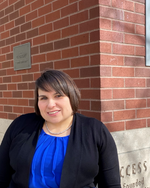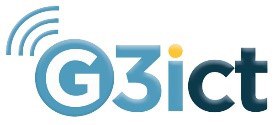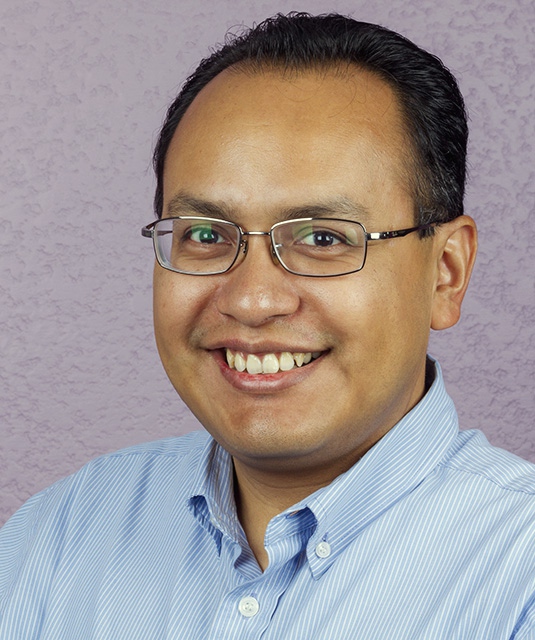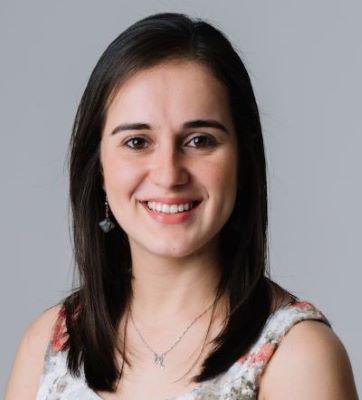Large Scale Cloud-Based Assistive Technologies Deployment in Northern Italy
Posted on March 10, 2011

Vice President
An interview with Claudio Giugliemma, President and Founder of the Dominic Foundation and creator of the LUCY cloud-based platform
Francesca Cesa Bianchi (F.C.B.): You are preparing the launching of the first large scale deployment of cloud-based assistive applications and services for persons with disabilities in Northern Italy. How will persons with disabilities have access to those applications and services?
Claudio Giugliemma (C.G.): The LUCY platform has been created for and around users of all abilities with accessibility objectives playing a central role in the overall design. The LUCY platform includes both Open Source and proprietary assistive software and covers all types and degrees of disabilities. LUCY provides a plug-in for browsers and includes, free of charge, an initial set of cloud-based assistive features and applications which can be used within a browser anywhere and anytime. Users have just to register as LUCY users by filling-in the User Profile and Preferences, including the specific accessibility requirements which have to be personalized. Each time a user logs in with his/her user name and password with a browser into the LUCY server, the selected tools will be automatically activated according to his/her web-based user profile. Users will have the freedom to use any device like a PC, a tablet or smartphone with the same system. In addition, the LUCY platform includes a specific Assistive Technologies (AT) section where users can download Open Source solutions or purchase others at a very attractive price.
F.C.B.: Which type of organizations will participate?
C.G.: The LUCY Digital Inclusion Project for Italy is an initiative of the Swiss-based Dominic Foundation and includes Italian and international partners such as the Center for Persons with Disabilities “Sim-patia,” a consortium of 23 Northern Italian towns, the City of Como, the “Poste Italiane,” Microsoft, LucyTech Inc., the Italian Ministry of Technological Innovation and the Italian Chamber of Commerce. It is sponsored by the governments of the Region of Lombardy and the Province of Como. G3ict and several international organizations serve on the Lucy project Scientific Committee.
F.C.B.: Is this a private–public partnership which will be open to more participants over time?
C.G.: The LUCY Digital Inclusion Project for Italy is a private-public partnership. Its short-term objective is to deploy its first large scale implementation by May 2011 in the Region of Lombardy with a full range of localized services and contents. By analyzing results and fine tuning our implementation, we seek to create a model which can be deployed to many new participating organizations across all Italian and European regions. Indeed, besides generic cloud-based assistive services and applications, the localization aspects of future deployments will be important and rely on multiple partnerships.
F.C.B.: Beyond assistive services, which key applications will be made available by LUCY to persons with disabilities?
C.G.: The main cloud-based applications which will be available free of charge to all users are grouped in several areas which are: communication applications such as email, chat and instant messaging, SMS, and audio & video calls over IP, social networks; office applications like Word, Excel, PowerPoint, address book, agenda-calendar; e-services such as e-health, e-education, e-government, e-skills, and e-emergency; entertainment applications like games, e-books, music, and web TV and radio.
F.C.B.: How is the project funded?
C.G.: The project is initially funded by private and public institutions. This initiative is built on a business model that has the goal to reach its full sustainability within the first 18 months of activity. In other words, LUCY Digital Inclusion is not a pilot, but a long-term initiative, with a business oriented approach in order to guarantee its sustainability on the medium-long term.
F.C.B.: Which benefits will be most important for users and persons with disabilities?
C.G.: The LUCY cloud computing features will benefit all users. They will however be particularly beneficial to novice users and users with disabilities:
- The LUCY platform eliminates complex installation processes, constant updates and maintenance because all applications are directly available on the cloud instead of being installed on each single device.
- Users do not have to worry about viruses, cyber-attacks and backup of personal data and configuration, because the user profile, personal data and application are securely stored in the cloud and available anytime and anywhere.
- All the applications are available as a “Software as a Service,” in other words, users do not have to pay single licenses for each application, and can use freely the application directly through the web.
- Users can access personal data, services and applications through any device (personal computers, tablets and smartphones) and still have the personal configuration and data as if they were using their own computer. Cloud-based solutions offer an almost full independency from the hardware. This is particularly important for persons with disabilities who can use any hardware anywhere, anytime. Users just need to log-in into the LUCY portal to activate their personal profile (for accessibility) and access their own applications, services and personal data like documents, e-mails, information, etc.
- Built-in Assistive Technology: LUCY provides a built-in set of assistive tools and applications directly into the browser or in the LUCY Cloud. Most of them are Open Source and available for free. Others, which are proprietary, can be available at a very low price because cloud-based ATs applications will be offered as a service which is a new distribution and business model for this category of software, but has been already very successful for other areas of applications.
- Online and offline capabilities: In case of low or inconsistent access to broadband, the LUCY solution provides offline capabilities. This solution is particularly beneficial in developing countries where access to the Internet is not 100 percent guaranteed and sometimes not affordable.
- Interoperability: The access to the platform and its services and applications is available from any Operating System like Windows, Android or iOS.
-----------------------------------------------------------------------------------------------------------------------------------------------
Biography of Claudio Giugliemma
Claudio Giugliemma (Swiss citizen born in 1966) is an internationally recognized expert in Information and Communication Technology and Accessibility, with an extensive and international working experience in the IT and AT (Assistive Technology) Industry. With over 20 years of cross-sector experience on ICT, e-Health, e-Education and Assistive Technologies, in the past twelve years he has focused with great success on Accessibility and Usability of ICT and in particular on the Digital Inclusion.
Founder and Board member of QualiLife Inc., a Swiss company specialized in the development and distribution of award-winning software solutions for the Health Care and Accessibility market, he covered the CEO and CTO position for over 9 years taking the company to an international leading position.
Claudio is a member of various civil society organizations; e.g. Steering Committee member of G3ICT (the Global Initiative for Inclusive ICTs) as well as member of the European Voices For Innovation organization. He was also Steering Committee member of AIA (Assistive Interoperability Alliance) which is now part of ATIA(Assistive Technology Industry Association). In addition, Claudio was also the promoter and Steering Committee member of the European founded project called TOBI which is developing the first BCI (Brain Computer Interface) for people with disability.
In 2005, Claudio founded and he is the president of Dominic Foundation, a Swiss Foundation with the goal of promoting fully accessible and sustainable ICT for people in the Digital Divide group. In this position he has developed a new technology concept and solution for the Digital Inclusion, named LUCY.
In 2009, Dominic Foundation joined as active member the ITU (International Telecommunication Union), in particular the ITU-D sector (Development), and in 2010 the ITU-T sector (Standardization) and the DCAD (Dynamic Coalition on Accessibility and Disability).
In 2010, Claudio founded the company LucyTech Inc., a Swiss company specialized in developing e-Inclusion ICT solutions and manage International Digital-Inclusion projects.
Claudio is collaborating with several governments’ initiatives for ICT Accessibility, Interoperability and Digital Inclusion (e-Inclusion) and he is regularly invited to Workshops and Conferences all around the world.
Claudio has had cross-sector experience in different areas involving not only industry and civil society aspects but also policy and standards setting activities in ITU. This new approach and vision have measurably increased the use of ICT in the Digital Divide area. Claudio believes that technology should serve the people, not the opposite.
*************************************************************************************************************************************************
Related Video: LUCY Digital Inclusion for Italy





























